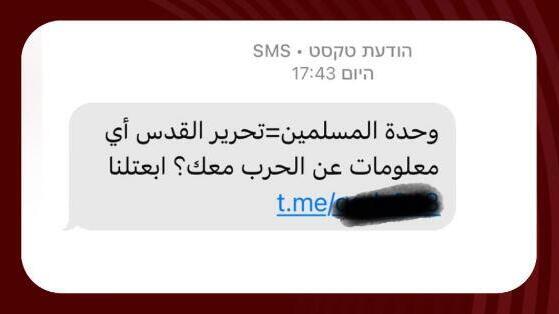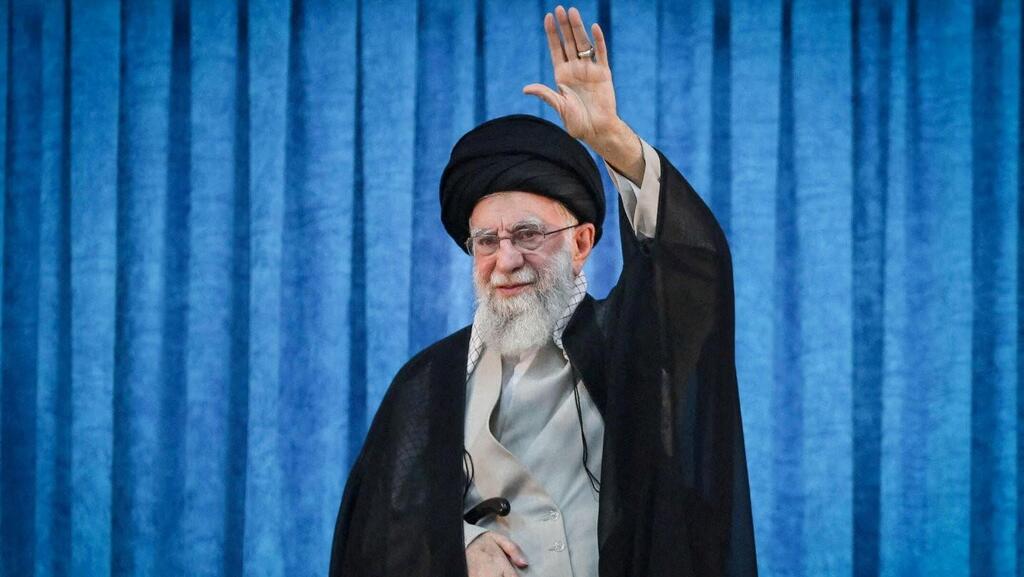As cyber warfare continues to play a central role in Israel’s confrontation with Iran—particularly since the launch of Operation Rising Lion—Iranian cyber units appear to be expanding their focus.
According to a report by the Iranian “News” Telegram channel on Sunday evening, the Islamic Revolutionary Guard Corps (IRGC) is now attempting to enlist Israeli Arab and Palestinian citizens in its psychological warfare campaign against Israel.
2 View gallery


Iranian text message calling on Israeli Arabs and Palestinians
(Photo: Israel National Cyber Directorate)
In recent days, Iran has distributed SMS messages urging recipients to upload videos of Iranian missile strikes on Israeli territory. The goal is to flood social media with fear-inducing content as part of an ongoing psychological warfare effort. Analysts believe this shift indicates Iran is struggling to recruit Israeli collaborators, as it had reportedly done earlier in the conflict and is now trying to engage new audiences.
Get the Ynetnews app on your smartphone: Google Play: https://bit.ly/4eJ37pE | Apple App Store: https://bit.ly/3ZL7iNv
The campaign appears to focus on recruiting Sunni Arab citizens and Palestinians—a strategy many see as flawed, given the longstanding sectarian tensions between Sunni Muslims and Iran’s Shiite regime. Notably, Iranian missile strikes have hit Jewish, Muslim and Christian areas alike, further eroding any potential sympathy.
2 View gallery


Iran's Supreme Leader Ali Khameneni
(Photo: Office of the Iranian Supreme Leader/WANA/Handout, Reuters)
The messages include links for uploading videos or other media, a tactic Iran has used frequently in the past to spread its narrative through social platforms. However, some experts have questioned why Iran would need Palestinian footage, as images and videos of missile impacts in Israel—particularly on Telegram—have been widely available since the war began.
This could indicate a deeper motive: establishing direct contact with Palestinians, possibly to recruit local agents for the IRGC. Tehran’s credibility with Palestinians has waned since the failure of its promised mass assault on Israel on October 7, suggesting the new outreach may reflect desperation rather than confidence.
Meanwhile, access to the internet in Iran remains heavily restricted. Although newer Starlink-based technologies allow limited messaging without traditional terminals, access to social media and media-sharing platforms remains spotty, further complicating Iran’s ability to manage and spread its narrative.


